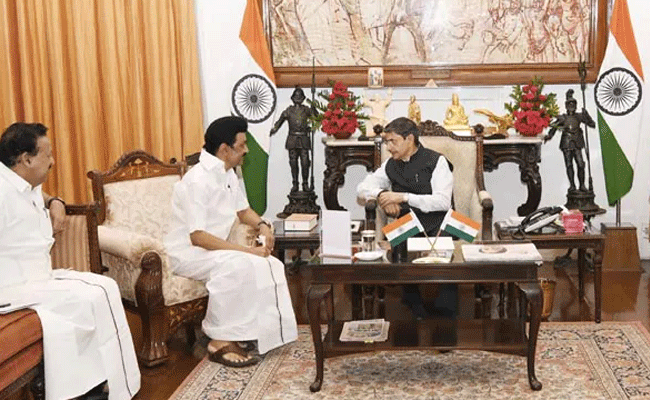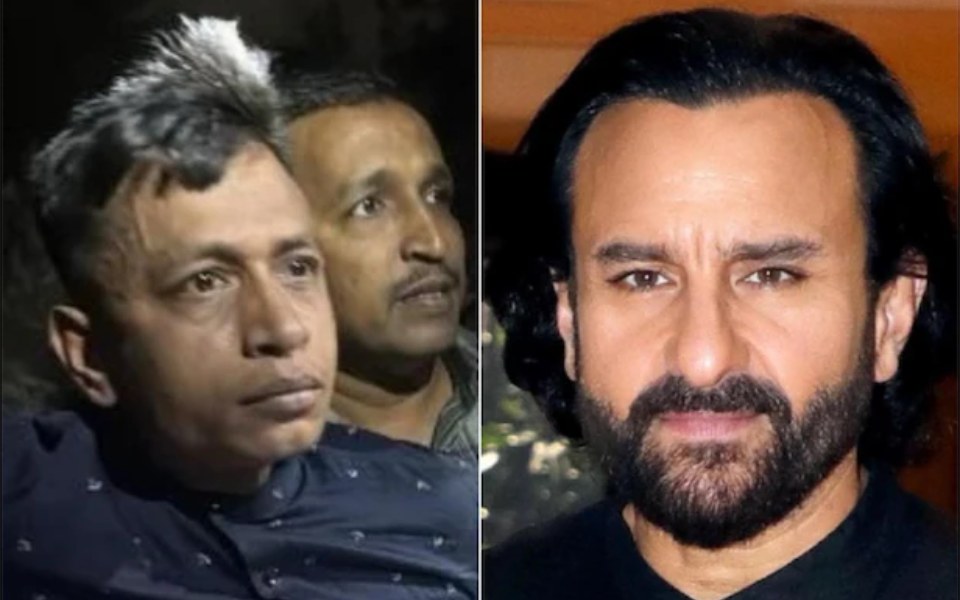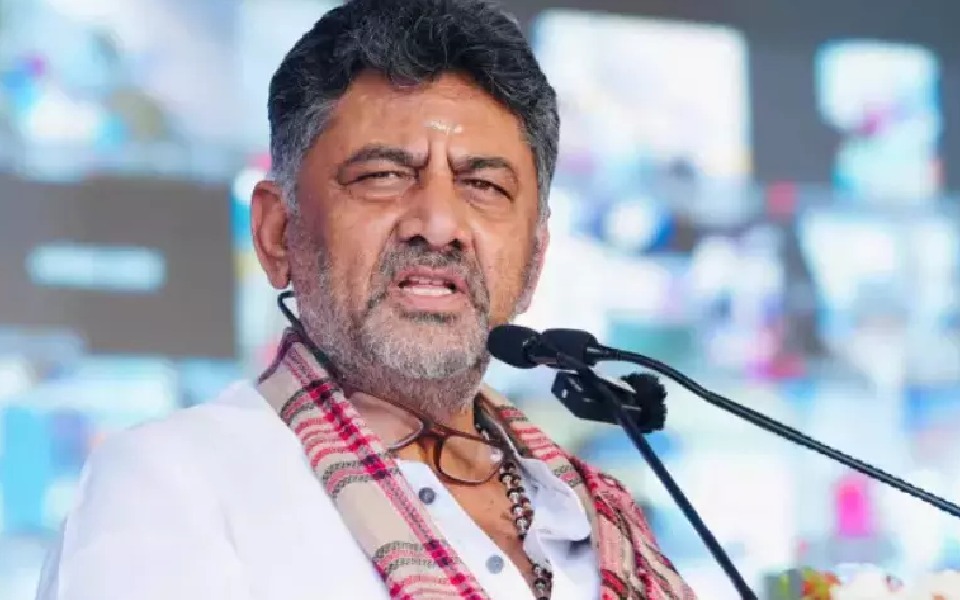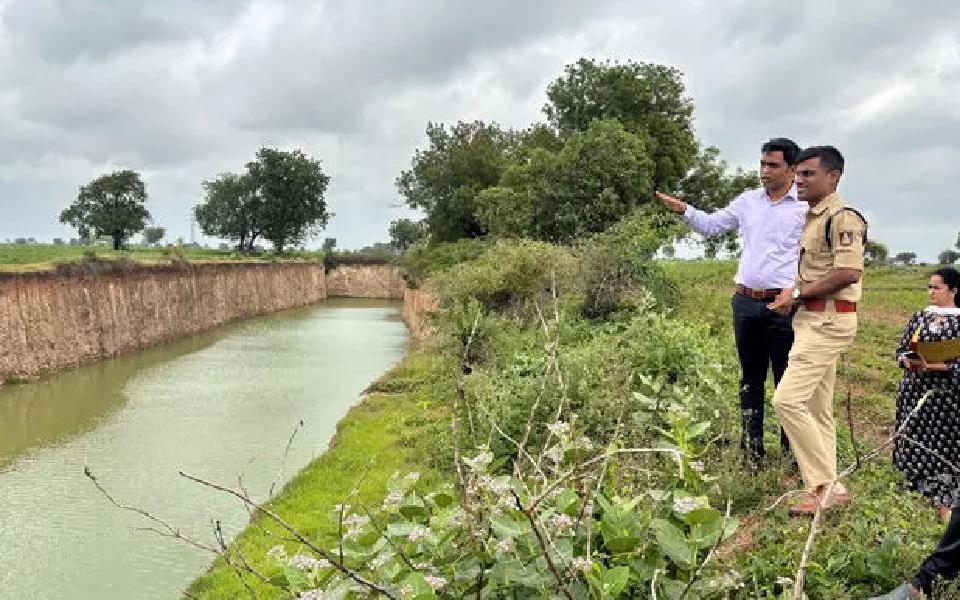Chennai (PTI): A day after the spat between the ruling DMK and Tamil Nadu Governor R N Ravi on the floor of the state assembly, "#GetoutRavi" posters, prominently featuring Chief Minister M K Stalin surfaced in some parts of the city.
The hashtag was trending on Twitter on Monday following Ravi's face-off with the state government in the Assembly where Stalin, also president of the ruling DMK piloted a resolution against the Governor's deviation from his customary address to the Legislature and retain the draft prepared by his government.
However, in Pudukottai, posters were put up by local BJP functionaries hailing Ravi. Many BJP Twitter handles backed him and slammed the ruling DMK over the matter.
Stalin's son and state Minister Udhayanidhi hailed what happened in the Assembly on Monday and said it was an "unprecedented event" in the history of the House.
"Normally our leader (Stalin) makes the opposition run with his replies (in the assembly) but this time he made the governor run," he quipped at an event.
Stalin will be the first CM to voice concern whenever "our rights" are affected, he added.
A senior TN BJP functionary filed a police complaint against some MLAs of the ruling DMK.
In a tweet, A Ashvathaman, State Secretary, said he has filed the complaint under Section 124 of the IPC, which deals with "assaulting President, Governor, etc., with intent to compel or restrain the exercise of any lawful power."
Protests were held in Coimbatore against the Governor by the Thanthai Periyar Dravidar Kazhagam where the agitators attempted to burn an effigy of Ravi. Elsewhere, local BJP workers staged a demonstration condemning the incident. Police detained the respective activists seperately.
Meanwhile, another row erupted over the Raj Bhavan's Pongal celebrations invitation allegedly not containing the state government emblem. The invitation contained only the national emblem, many alleged.
Let the Truth be known. If you read VB and like VB, please be a VB Supporter and Help us deliver the Truth to one and all.
Mumbai, Jul 25 (PTI): Police have opposed the bail plea of the Bangladeshi national arrested for allegedly stabbing Bollywood actor Saif Ali Khan with a knife and injuring him at his home here in January this year, telling a Mumbai court there was "strong evidence" against the accused.
Citing a Forensic Science Laboratory report, police reiterated before the sessions court their earlier claim knife fragments that got lodged near the actor's spine during the attack as well as a part found at the crime spot have matched with the weapon recovered from the accused, Shariful Islam.
These three pieces were part of the same weapon (knife) used to attack the filmstar, the police said in a written response to the accused's plea submitted in the court on Thursday (July 24).
Khan was repeatedly stabbed with a knife by an intruder inside his 12th floor apartment in upscale Bandra on January 16 during a robbery attempt.
The 54-year-old actor underwent surgery at Lilavati Hospital to remove a piece of knife that got lodged near his spine during the attack. He was discharged from the private hospital after five days.
Shariful Islam, a Bangladeshi national, was arrested two days later for allegedly stabbing Khan.
The police, in their response, highlighted that the accused is a Bangladeshi citizen residing illegally in India.
If granted bail, there was a possibility that he may flee India and not appear before the court during the trial. The crime committed by the accused is of a "very serious nature, and strong evidence" is available against him, they argued.
In his bail plea, filed through advocate Vipul Dushing, the accused asserted he was innocent and had no prior criminal record.
Investigation into the case has practically concluded with only the filing of a chargesheet pending, the accused contended while seeking bail.
The alleged attacker has been booked under Bharatiya Nyaya Sanhita (BNS) sections related to house trespass, robbery and dacoity with attempt to cause death or grievous injury.





